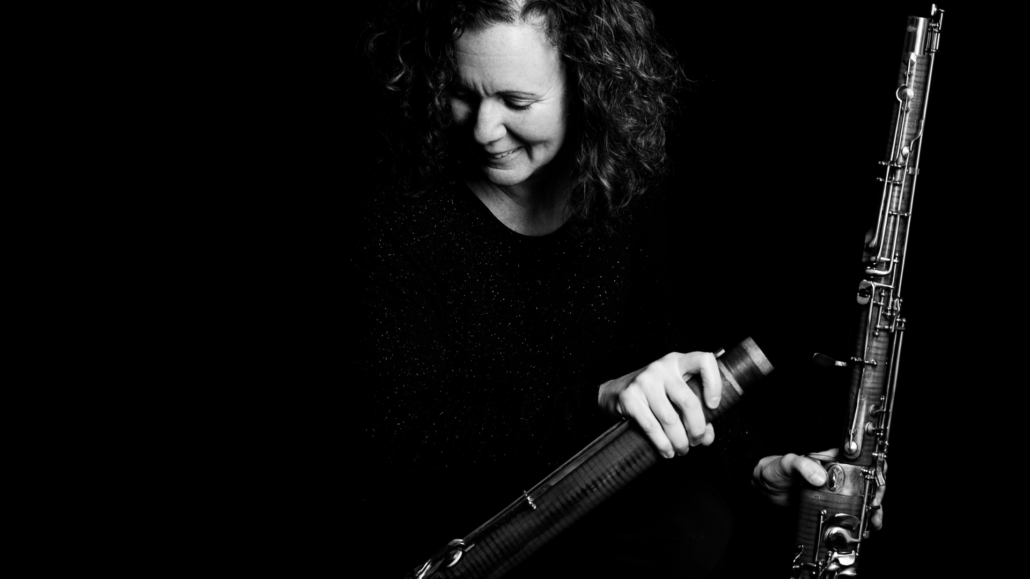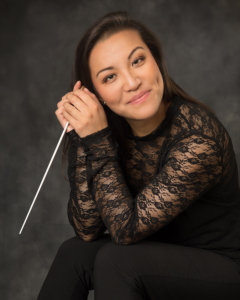MARCH 8, 2024
TCHAIKOVSKY SYMPHONY No. 4
Whether in the concert hall or the rehearsal room, it’s easy to view the conductor as a kind of interface between the analytical and the emotional, tasked with drawing a living, breathing performance from their cast of musicians while also trying to parse the abstract cartography of black notes on a white page. And, as it happens, Deanna Tham does not disagree with this view of her art.
“I think you can see it that way,” says the Asian-American musician, who is currently associate conductor with the Oregon Symphony and music director of Monroe, North Carolina’s small but innovative Union Symphony Orchestra. “We’re always trying to bridge that gap. Like, how do we make the technical go beyond the technical? We use the technical information that we are given, especially for composers who are no longer with us, in trying to make sense of all the markings that we have in the music. So that’s really important to me.”
Some conductors, Tham adds, find it enough to do “exactly what the ink says”. She is not among their ranks. “I’m like, ‘Uh-uh. I want to do a little bit more than that.’ The ink is just sort of a clue.”
On one level, the Tham and Tchaikovsky program that she has assembled for her first Victoria Symphony appearance is an inspired piece of self-indulgence. “It’s just a lot of music that I like,” she says. But there’s also a hidden through line, in that Pyotr Ilyich Tchaikovsky, William Grant Still, and Igor Stravinsky all had to wrestle with how to construct not only an artistic identity but a personal one, just as Tham herself has had to.
The daughter of immigrants from Singapore, Tham describes herself in slightly tongue-in-cheek fashion as the “black sheep” of her family for giving up a promising career in biology. (Her sister, she allows, is a doctor.) The decision has obviously worked out well, but it has not been without sacrifice.
“I identify with music that expresses a strong sense of conflicted identity,” she says. “And I think that has to do with my view of the world, what has spoken to me from being the child of immigrants. I’m a ‘hyphenated American’, as they call it, and then also being both a scientist and a musician… That conflict of identity—of trying to bring disparate parts of myself together and expressing those conflicts from a place of beauty—is something that speaks to me a lot. And I think all three pieces that are on this program have that in them.”
Of the three composers, Stravinsky might have had the easiest time of it, having enjoyed both early success and a reasonably high level of self-esteem. Yet his artistic restlessness, mirrored by his physical peregrination from Saint Petersburg to Paris to Los Angeles, made his long and fruitful career one of constant reinvention. The Pulcinella Suite, from 1922, marked his turn from an almost pagan avant-primitivism—as exemplified by 1913’s Rite of Spring—to neo-classical forms, and in discussing that move the composer once gave a rather revelatory explanation.
“Pulcinella was my discovery of the past, the epiphany through which the whole of my late work became possible,” he said. “It was a backward look, of course—the first of many love affairs in that direction—but it was a look in the mirror, too.”
Darker America and the Symphony No. 4 in F minor find William Grant Still and Tchaikovsky doing their own mirror-gazing. When the latter looked in the glass, he would have seen an artist in disguise—a closeted homosexual in a society where being “out” was not an option.
“In the Fourth Symphony,” Tham says, “Tchaikovsky is starting to recognize how he’s feeling, who he really is as a person, and you just feel this conflict, this fight, within him. ‘Who am I going to be? Am I going to be happy about this?’ And the finale is just so impactful, because it has this overwhelming insistence upon joy. And the audience can determine for themselves whether he is truly happy or whether he is trying to force himself to be so over the top.
“That really struck me,” she adds. “Is this really joyful? Even though it’s so fanfare-like and so bombastic, is this joyful or not?”
Darker America, which Still saw as representing “the triumph of a people over their sorrows through fervent prayer,” ends on a more decisively optimistic note. “It’s a very personal piece,” Tham comments. “It’s a conglomeration of all of Still’s musical influences and social experiences as a Black American. You’re going to hear influences of jazz, you’re going to hear influences of gospel, you’re going to hear influences of folk—but also influences of classical music, because he was trained that way. And because of how they conflict with each other you’re going to hear a lot of dissonance, but also a lot of beauty.
“It was really moving to me when I first performed that piece, to see how he reconciled all of these different parts of himself and put them so blatantly on the page,” she continues. “And, yes, it does end in a place of gratefulness. Ultimately he’s glad to have what he does have, even though there have been struggles—as I’m sure there were for him, being an African-American.”
A century after Darker America’s premiere, however, Still’s music remains relatively obscure. As Victoria Symphony music director Christian Kluxen has noted, “With the quality and the sheer amount of the music he composed, it’s crazy to think that his music is so little performed.”
It’s not hard to imagine why, and it’s not because of any inadequacy in Still’s nearly 200 works. Although many of his scores are believed to have been lost, Still wrote thirty choral works, nine operas, five symphonies, four ballets, and dozens of other pieces, many of which are ripe for re-discovery.
Notes by Alex Varty



 Deanna Tham, conductor
Deanna Tham, conductor